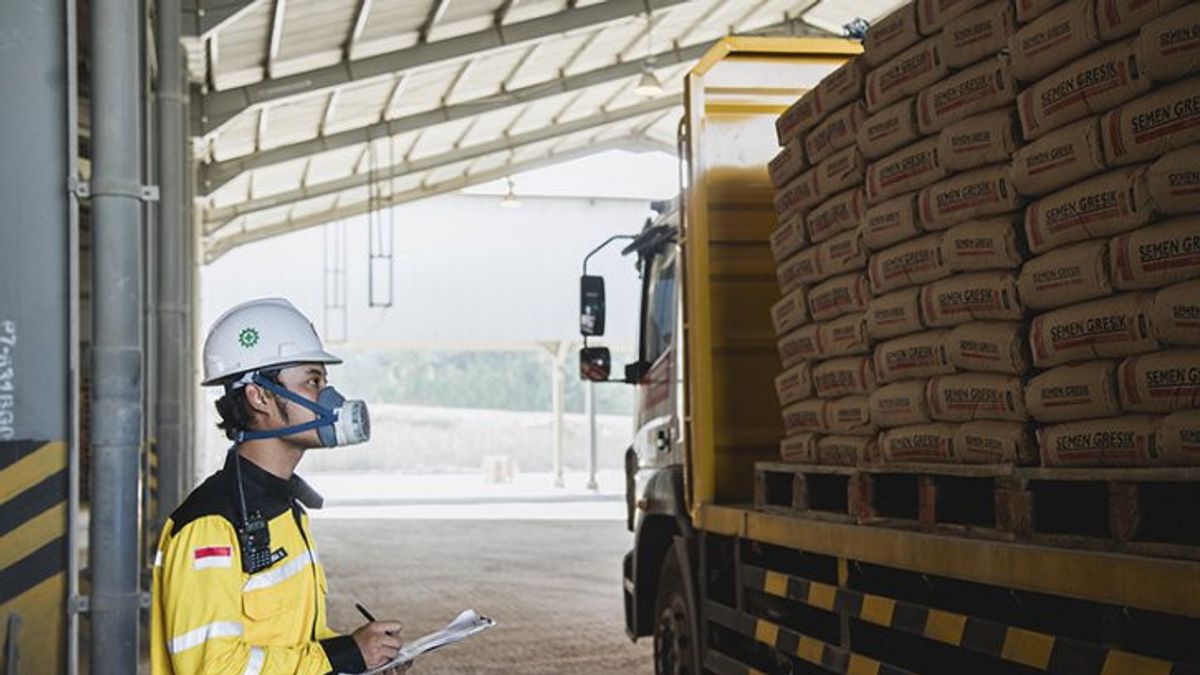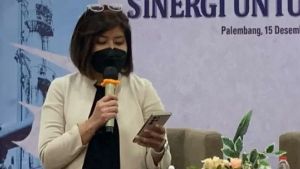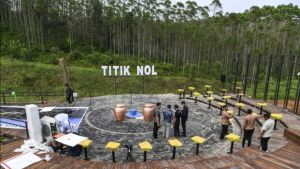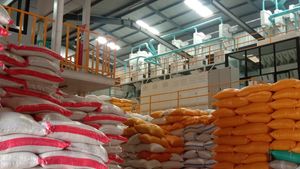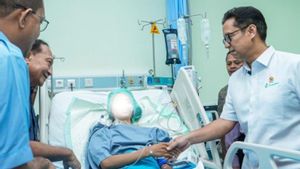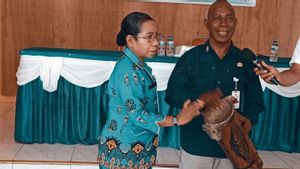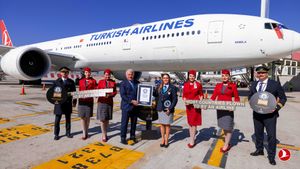JAKARTA - Semen Indonesia (Persero) Tbk (SMGR) stated that the transformation of technology-based industries is the company's competitive advantage to increase competitiveness. Also, to maintain market leadership.
"SIG is committed to continuing to innovate in creating breakthroughs in business processes through the implementation of integrated and comprehensive technology to achieve the optimization of supply chains," said the President Director of PT Semen Indonesia (Persero) Tbk or GIS, Donny Arsal quoting Antara.
The success of carrying out the Industry 4.0 transformation led two SIG subsidiaries, namely PT Semen Tonasa and PT Solusi Bangun Indonesia Tbk (SBI), to be elected as National Lighthouse Industry 4.0 at the Lighthouse Industry 4.0 awarding event organized by the Ministry of Industry.
The Lighthouse Industry 4.0 award is given to companies that are considered capable of being a pilot (role model) for other industries in the transformation and implementation of Industry 4.0 to encourage financial/economic, operational, and technological impacts.
Companies appointed as Industry 4.0 Lighthouses are also considered capable of acting as references to other industries in the implementation of Industry 4.0 technology, such as artificial intelligence (AI), advanced additive and analytic manufacturing, as well as improved production systems.
PT Semen Tonasa was selected as the National Lighthouse Industry 4.0 for the Operational Excellence (Energy Management) use case through the application of Expert Optimizer and Tonasa Energy Management Center (TEMC) technology based on AI, machine learning, and predictive control models.
Meanwhile, SBI was selected as the National Lighthouse Industry 4.0 for the integrated Waste Management use case through the implementation of integrated RDF (Refuse Derived Fuel) Data Analytics and Natural E-Performance technology.
SIG Operations Director, Reni Wulandari, revealed that the journey of Industrial Transformation 4.0 GIS has started since 2011 through the implementation of ERP (Entreprise Resource Planning), the implementation of the Plant Information System, improvement of comprehensive business processes, and the implementation of digitalization initiatives for the core business and its supporters.
"After the stipulation of PT Semen Tonasa and SBI as a company with the predicate National Lighthouse Industry 4.0 in Indonesia and in line with the road map of the Ministry of SOEs, SIG will continue to create technology-based innovations towards the Global Lighthouse Network Industry 4.0," said Reni.
At the Operational Excellence (Energy Management) use run by PT Semen Tonasa, the application of Expert Optimizer technology will support the stabilization and optimization of the cement production process parameters.
Expert Optimizer has been implemented in the production process atraw mill, keln, and cement mill on Plant Tonasa 5. This technology is said to have had an impact on increasing production capacity by 3.18 percent, as well as a decrease in specific thermal energy consumption by 1.76 percent, and specific electricity consumption by up to 2.63 percent.
TEMC at PT Semen Tonasa is an AI-based company energy control center that can manage and integrate all energy-related data, thus producing real-time dashboards and reporting, as well as recommendations for optimal operating parameters.
Through TEMC, he continued, PT Semen Tonasa managed to save energy usage of up to 4,899 Terajoule (TJ) or the equivalent of 167,228 tons of coal that save energy costs, as well as a decrease in carbon dioxide (CO2) emissions by 488 thousand tons.
SEE ALSO:
Terkait, Integrated Waste Management uses, diterapkan SBI melalui unit bisnis pengelolaan sampah Natabumi dengan tujuan meningkatkan pasokan dan optimalisasi produktivitas pada operasional RDF Plant Cilacap. RDF merupakan bahan bahan bakar alternatif yang dihasilkan dari pengelolaan sampah kota.
"This solution not only helps the government overcome waste problems, but also supports the creation of a healthy environment, as well as provides economic benefits," he said.
Furthermore, the application of RDF Data Analytics and Nathabibumi E-Performance technology has had a positive impact on increasing RDF supply by 10 percent, RDF plant productivity by 67 percent, and business partners by 25 percent.
In terms of environmental and social aspects, this technology reduces coal consumption by 1,800 tons and CO2 emissions by 2,100 tons, and increases waste absorption in Cilacap City, Central Java, by 20 percent.
"As part of GIS' ongoing improvement, continue to strive to accelerate digital transformation, by replicating the proven implementation of Industry 4.0 technology (Artificial Intelligence, Machine Learning, and Augmented Reality) in one factory to another," said Reni.
The English, Chinese, Japanese, Arabic, and French versions are automatically generated by the AI. So there may still be inaccuracies in translating, please always see Indonesian as our main language. (system supported by DigitalSiber.id)
